External links
| General | |
|---|---|
| National libraries | |
| Scientific databases | |
| | This article about a German scientist is a stub. You can help Wikipedia by expanding it. |
Andreas Freytag | |
|---|---|
| Born | 23 October 1962 |
| Nationality | German |
| Institution | University of Jena |
| Field | Political economics |
| School or tradition | Freiburg School |
| Alma mater | University of Cologne University of Kiel |
| Influences | Böhm-Bawerk, Eucken, Tinbergen, Donges, Drazen |
| Information at IDEAS / RePEc | |
Andreas Freytag (born 23 October 1962) is a German economist. He currently holds the chair for political economics at the University of Jena.
Freytag earned his Diplom in economics from the University of Kiel in 1990, where he studied under Herbert Giersch. In 1994, he completed his doctoral degree in economics under supervision of Juergen B. Donges at the University of Cologne.

In a literary work, film, or other narrative, the plot is the sequence of events in which each event affects the next one through the principle of cause-and-effect. The causal events of a plot can be thought of as a series of events linked by the connector "and so". Plots can vary from the simple—such as in a traditional ballad—to forming complex interwoven structures, with each part sometimes referred to as a subplot or imbroglio.

The Battle of Hondschoote took place during the Flanders Campaign of the Campaign of 1793 in the French Revolutionary Wars. It was fought during operations surrounding the siege of Dunkirk between 6 and 8 September 1793 at Hondschoote, Nord, France, and resulted in a French victory under General Jean Nicolas Houchard and General Jean-Baptiste Jourdan against the command of Marshal Freytag, part of the Anglo-Hanoverian corps of the Duke of York.

The University of Jena, officially the Friedrich Schiller University Jena, is a public research university located in Jena, Thuringia, Germany.

Lujo Brentano was an eminent German economist and social reformer.

Gustav Freytag was a German novelist and playwright.
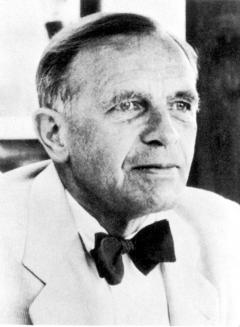
Wilhelm Röpke was a German economist and social critic, best known as one of the spiritual fathers of the social market economy. A Professor of Economics, first in Jena, then in Graz, Marburg, Istanbul, and finally Geneva, Switzerland, Röpke theorised and collaborated to organise the post-World War II economic re-awakening of the war-wrecked German economy, deploying a program sometimes referred to as the sociological neoliberalism.
Dramatic structure is the structure of a dramatic work such as a book, play, or film. There are different kinds of dramatic structures worldwide which have been hypothesized by critics, writers and scholars alike over time. This article covers the range of dramatic structures from around the world. How the acts are structured, what the center of the story is supposed to be about widely varies by region and time period.

Otto Ernst Heinrich Hermann Suhr was a German politician as a member of the Social Democratic Party of Germany (SPD). He served as the Governing Mayor of Berlin from 1955 until his death.
Georg Wilhelm Friedrich Freytag was a German philologist.

Jermaine Anthony Jenas is an English television presenter, football pundit and former professional footballer. He played as a central midfielder for English club sides Nottingham Forest, Newcastle United, Tottenham Hotspur, Aston Villa and Queens Park Rangers, scoring a career total of 39 goals from 341 league appearances. He also appeared 21 times for the senior England national football team, scoring one goal.
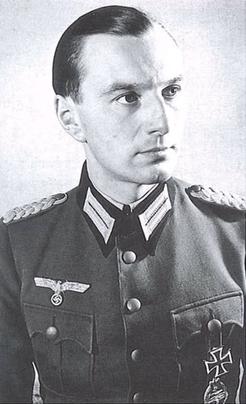
Alexander Otto Hermann Wolfgang Bernd(t) Freiherr Freytag von Loringhoven, was a Baltic German officer in the German Army during World War II. In 1956, he joined the German Federal Armed Forces, the Bundeswehr, and rose to the rank of Generalleutnant.
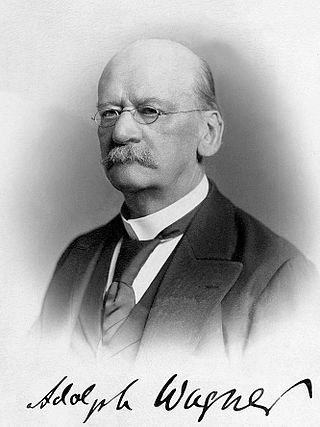
Adolph Wagner was a German economist and politician, a leading Kathedersozialist and public finance scholar and advocate of agrarianism. Wagner's law of increasing state activity is named after him.

Frederick Philip Grove was a German-born Canadian novelist and translator.

Elsa Baroness von Freytag-Loringhoven (née Else Hildegard Plötz; was a German-born avant-garde visual artist and poet, who was active in Greenwich Village, New York, from 1913 to 1923, where her radical self-displays came to embody a living Dada. She was considered one of the most controversial and radical women artists of the era.

Siegfried Freytag was a World War II German Luftwaffe pilot and wing commander. As a fighter ace, he was credited with 102 aerial victories of which 49 victories were claimed over the Eastern Front. Among his victories over the Western Front are at least 2 four-engine bombers. He was a recipient of the Knight's Cross of the Iron Cross Freytag had been nominated for the Knight's Cross of the Iron Cross with Oak Leaves, but the war ended before the paperwork had been processed.
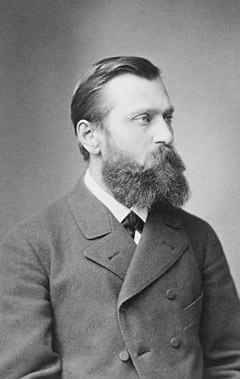
Johannes Ernst Conrad was a German political economist. Johannes Conrad was a Professor of economics in Halle (Saale), Prussian Germany. He was a co-founder of the important Verein für Socialpolitik in 1872. Late in his career, in 1911, he became the director of the newly established Institute for Co-operative Studies at the University of Halle. Conrad was an expert in political economy (Nationalökonomie) and became the editor of the influential Jahrbücher für Nationalökonomie und Statistik in 1870.
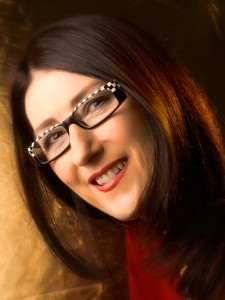
Irene Gammel is a Canadian literary historian, biographer, and curator. She has published numerous books including Baroness Elsa, a groundbreaking cultural biography of New York Dada artist and poet Baroness Elsa von Freytag-Loringhoven, and Looking for Anne of Green Gables, revealing the hidden life of Canadian author L.M. Montgomery during the writing of her classic novel Anne of Green Gables. Together with Suzanne Zelazo, Gammel published Crystal Flowers: Poems and a Libretto by Florine Stettheimer, and Body Sweats: The Uncensored Writings of Elsa von Freytag-Loringhoven, the first major English collection of the Baroness's poems. Both books were selected for the New York Times’ notable art books for 2011.

Karl Wilhelm Göttling was a German philologist and classical scholar.
Uwe Cantner is a German economist.

Bruno Baron von Freytag-Löringhoff was a German philosopher, mathematician and epistemologist. He was also a university lecturer at the University of Tübingen. During World War II, Freytag-Löringhoff worked as a mathematician in the In 7/VI, that was the signals intelligence agency of the Wehrmacht and worked with Fritz Menzer on the testing of cryptographic devices and procedures. Freytag-Löringhoff worked specifically on the testing of the m-40 cipher machine. His most important contributions to the history of logic and mathematics was his studies and descriptions from 1957, of the calculating machine, built by Wilhelm Schickard.